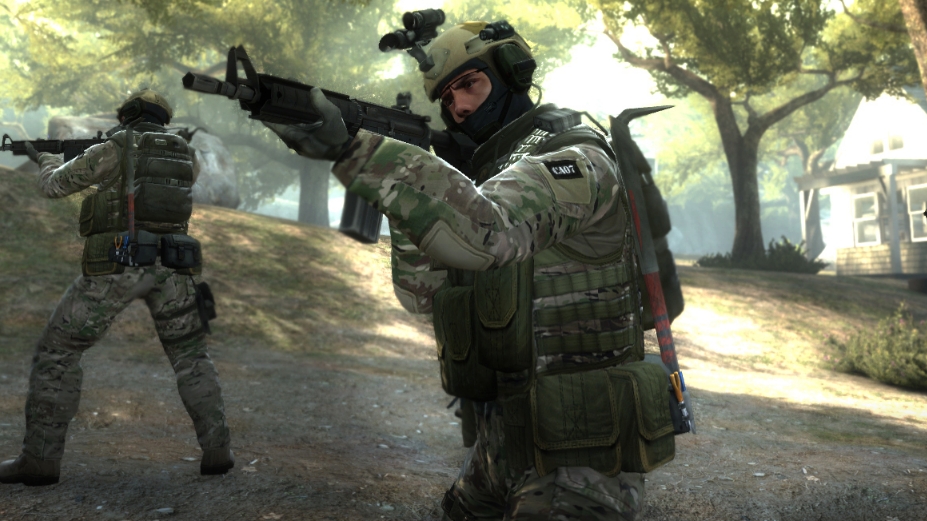Seven CS:GO pros suspended for a year for betting on matches
ESIC said investigations into allegations of match-fixing in the MDL are ongoing.

In 1989, Major League Baseball great Pete Rose was given a lifetime suspension from the sport for betting on the Cincinnati Reds while he was manager of the team—a suspension that still holds weight today, more than 30 years after his retirement, because he remains ineligible for election to the Baseball Hall of Fame. By that standard, the seven Counter-Strike: Global Offensive pros who were recently busted for betting on matches got off lucky: They were only suspended for a year.
"As a result of the joint investigation between ESIC and ESEA, ESIC has discovered that seven current CS:GO professionals playing in MDL [Mountain Dew League] Australia placed bets on MDL matches during their participation in the MDL. Some of these individuals engaged in betting activity related to matches they were playing in themselves," the Esports Integrity Commission said in a statement.
"Further to this, ESIC has identified that several associates of the Offending Parties also participated in betting activities related to the matches being played by the Offending Parties. In some instances, the associates placing bets mirrored identical bets to those placed by the Offending Parties."
The ruling means that the following players will be taking the year off:
- Stephen “sjanastasi” Anastasi (LAKERS) [now playing as “stvn”]
- Akram “akram” Smida (Rooster) [now playing as “ADK”]
- Daryl “Mayker” May (Ground Zero)
- Corey “netik” Browne (Rooster) [sometimes spelt “nettik”]
- Damian “JD/The Real Goat” Simonovic (Rooster 2)
- Carlos “Rackem” Jefferys (Rooster 2)
- Joshua “jhd” Hough-devine (Rooster 2)
MDL isn't the biggest pro gaming league on the scene, but it is a legitimate professional league: It was formed by ESL in partnership with Mountain Dew and serves as "a gateway for rising teams to compete in ESL Pro League," according to its website. That means real consequences for dicking around, which in this case translates to multiple violations of ESIC's Anti-Corruption Code, section 2.2:
- 2.2.1 Placing, accepting, laying or otherwise entering into any Bet with any other party (whether individual, company or otherwise and including any daily fantasy games in any jurisdiction where such games are regulated by a gambling authority or considered “betting” in a legal or regulatory sense and including “in-game” betting with in game items (eg skins etc that have real value)) in relation to the result, progress, conduct or any other aspect of any Match or Event in the Game that the Participant plays professionally or is involved in any other capacity, such as manager, coach, agent etc. Any Participant that has significant involvement (in the entire discretion of the Integrity Commissioner) in a number of Games (such as a team owner or other team official) may not place or otherwise enter into any Bet on any of the Games in which he/she is involved.
- 2.2.2 Directly or indirectly soliciting, inducing, enticing, instructing, persuading, encouraging, intentionally facilitating or authorising any other party to enter into a Bet in relation to the result, progress, conduct or any other aspect of any Match.
Rooster, currently ranked third in MDL Australia (and whose players accounted for five of the seven suspensions), issued a statement acknowledging that betting took place, but said that the players only bet on themselves to win, which they didn't think would be a problem.
"They tried their hardest and put 100% into every game they played bet or no bet, not a single match was ever fixed, there was no conspiring, there's no proof of any throwing and this wasn't really explained in the ESIC statement which led to hate towards our players," the team said. "At the time these players did not educate themselves in proper rulings into the season about betting on games, all they knew was throwing being a no go, as it is wrong morally and of course it is not allowed in any sport as it is punishable by law."
Keep up to date with the most important stories and the best deals, as picked by the PC Gamer team.
The team added that its players "deeply regret" their actions and expressed hope that others will learn from their mistakes.
ESIC can't ban players directly, but its rulings are binding across all its member organizations, which includes ESL, Dreamhack, Blast Pro Series, LVP/Fandroid, and many others—enough to effectively keep blacklisted players out of pro competition for the duration, in other words. It also formally requested that non-member organizers honor the bans in their own tournaments.
The announcement of the suspensions comes just a couple of months after lengthy suspensions were handed to three CS:GO team coaches who were caught using a spectator bug to cheat in competitions. That investigation was eventually expanded and is still underway, and it sounds like this one isn't finished yet either: ESIC said that it is still investigating allegations of match-fixing in the MDL in both North America and Australia, explaining that those investigations are taking much longer to complete because they're more complex and are "subject to necessary collaboration with law enforcement in various jurisdictions."
Thanks, Kotaku.

Andy has been gaming on PCs from the very beginning, starting as a youngster with text adventures and primitive action games on a cassette-based TRS80. From there he graduated to the glory days of Sierra Online adventures and Microprose sims, ran a local BBS, learned how to build PCs, and developed a longstanding love of RPGs, immersive sims, and shooters. He began writing videogame news in 2007 for The Escapist and somehow managed to avoid getting fired until 2014, when he joined the storied ranks of PC Gamer. He covers all aspects of the industry, from new game announcements and patch notes to legal disputes, Twitch beefs, esports, and Henry Cavill. Lots of Henry Cavill.

